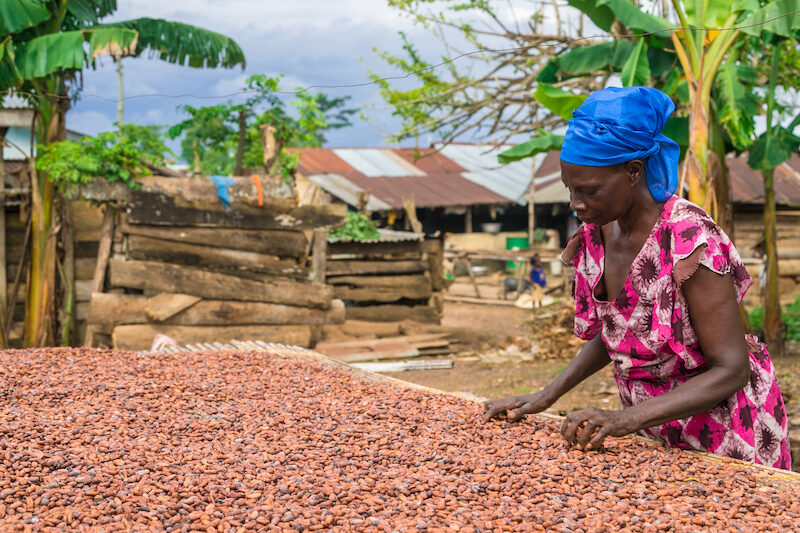Combined industry action on improving farmer pay for the cocoa sector remains crucial for its future

pic: Fairtrade
It’s now been a full four years since Mondelēz released its pivotal ‘No Silver Bullets’ study that revealed the sheer scale of the $10 billion income gap that cocoa farmers in West Africa are facing to earn a living income.
This was particularly shocking at the time, as nobody had, until then, managed to quantify just how challenging the task ahead would be in terms of bringing a decent standard of living to many farmers serving the global chocolate and confectionery industry – many of whom are still on below UN recognised poverty levels and have never even been able to afford to tasted any of the products that grace our international shelves.
But amid the tumultuous whirl of major world events in the past week and month alone, it is issues such as this that have unfortunately seemingly lost their place in the news agenda, as economies grapple with major matters of inflation, supply chain events, seismic political shocks, and ongoing warfare in Ukraine and Gaza that have left their mark on the state of the world.
While the globe is undoubtedly in a turbulent and challenging position, it is issues such as earning a living income that have to continue to be at the heart of international agendas, otherwise the very food chains we have come to rely upon will cease to exist. This is no exaggeration for effect, but the combined impacts of climate change, crop diseases, inflation and lack of investment infrastructure are weighing increasingly heavily upon many producing nations, including in Ghana and Ivory Coast.
So, four years on, where are we in fact now since the Mondelez report landed? While it is entirely correct to note that major manufacturers, along with the commendable efforts of smaller independents, are continuing to move the dial in the direction of travel for increasing farmer pay through sustainability schemes, crop diversification and agricultural training.
But if the sector is to be entirely honest with itself, it must surely acknowledge the reality on the ground is that we are still an awful long way off what is required to truly deliver the kinds of results that are going to deliver major change on the ground in the near term.
Perhaps the most clear point to note is that the two to three years of Covid-19 pandemic conditions has increased the burden on farmers yet further, with the $10 billion income gap identified just before that global tragedy occurred, most assuredly increasing by a number of billion more – making the resolutions to address the situation even more imperative.
It is telling that no further financial studies of note have emerged regarding the income gap – schemes have been introduced such as the Living Income Differential, designed to add several hundred dollars per tonne to cocoa prices with them aim of increasing pay for agricultural workers – but industry has found a way to circumvent these pieces of legislation through buying additionally through commodities markets. Companies and organisations such as Tony’s Chocolonely and Fairtrade have sought to bring in premiums on cocoa as well, which have definitely had an impact with the communities they work with.
But such measures are not yet industry wide, and it is patently obvious to many farmers and agricultural observers that unless chocolate and cocoa companies, along with the governments of the region, are physically willing to pay agricultural workers a full living wage, then the cycle will continue to play out without ever being resolved.
This was clear from our report last month on Ivory Coast farmers expressing their fears over farmer pay lagging behind the huge sums being achieved on New York and London specialist commodity markets (of up to $12,000 a tonne in April, which now stands at around $7,000 per tonne), that the situation cannot persist where workers are earning less than a fifth of what industry pays for core crops.
How can this be addressed? As anyone working in the sector will tell you, there are clearly no quick fixes – but unless the entire industry – from the big six companies, down to the independents and civil society groups gather together to fundamentally agree what those improved worker income levels should be, and fully commit to paying them, then the cocoa trade, and wider confectionery sector as we have known it for many decades, cannot sustain itself. It is that simple – and maybe a message that many manufacturers are not keen to hear, but that’s the stark reality. Will they act? Only time will tell, but that is the one thing that many producing nation communities simply just don’t have.
Neill Barston, editor, Confectionery Production magazine
- keep in touch at [email protected] or via social media @confectionprod and our Linkedin pages



